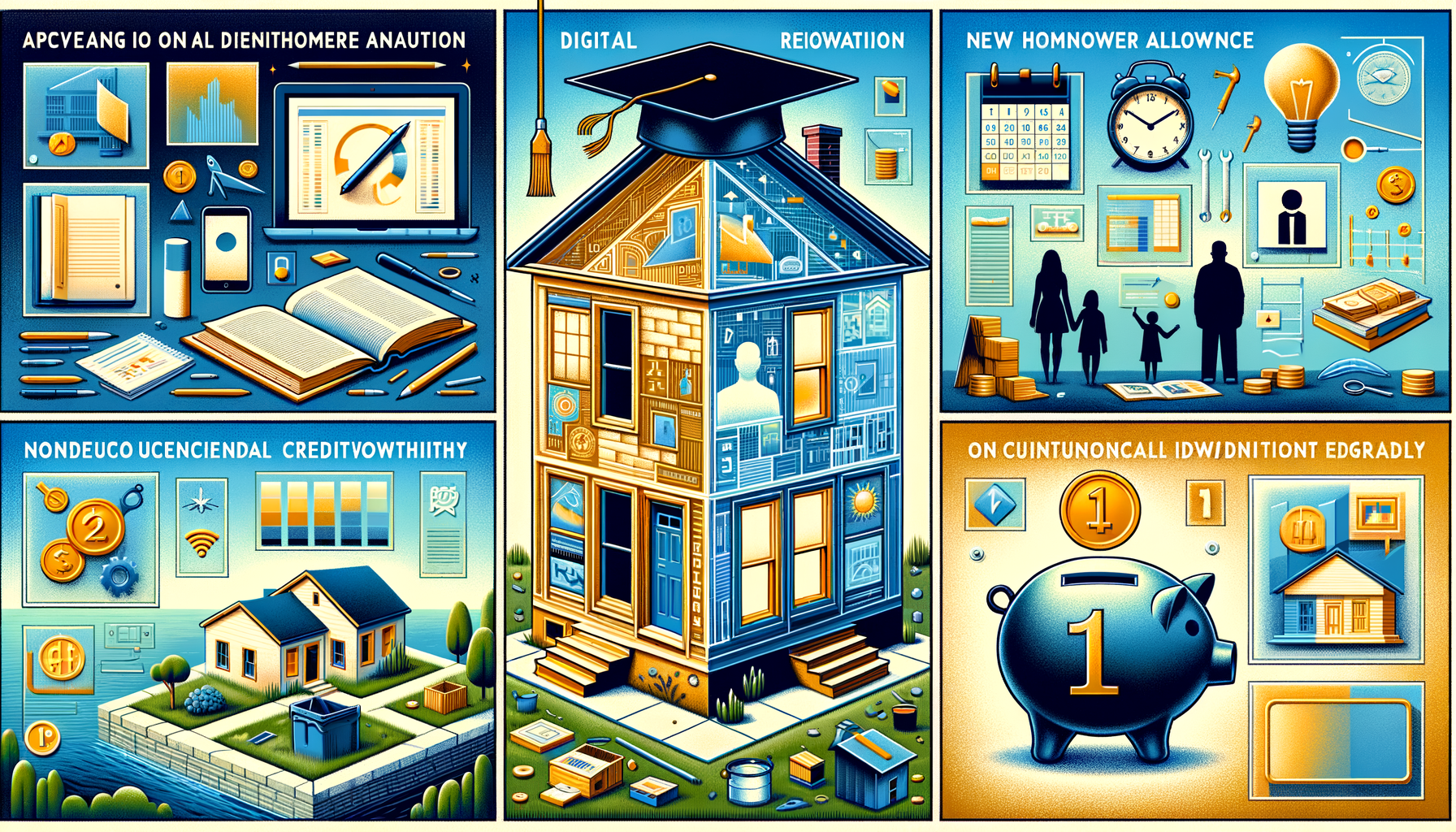“Exploring Fannie Mae’s Recent Updates: The $2,500 Temporary Credit and HomeReady Changes”

In an exciting development in the housing world, the renowned government-backed loan institution Fannie Mae has announced major updates to its popular HomeReady mortgage program, in a bid to improve affordability and accessibility for low to moderate-income borrowers across the United States.
Among the key changes is the waiver of the requirement to physically attend classroom-based pre-purchasing counseling for certain borrowers. This implies a major shift from tradition since, in the past, classroom-based homeowner counseling was viewed as a prerequisite to securing a mortgage. In contrast, the new approach allows online counseling to suffice, thereby removing barriers to borrowers with mobility or scheduling challenges.
The flexibility is aimed at assisting prospective homeowners who may not have time or means to travel to attend in-person training sessions. The opportunity to access online homeowner education programs like Framework represents a significant milestone in the realization of digital solutions for customers. Framework offers a convenient and efficient way to gain knowledge about various aspects of the home buying process including understanding credit, budgeting, selecting the right home, and obtaining a mortgage.
Besides these learning modules, the addition of the $2,500 cash allowance for renovation or repair expenses is designed to incentivize more borrowers to apply for the HomeReady mortgage program. This temporary cash incentive, valid on all loans sold to Fannie Mae with settlement dates from June 26 to December 31, 2017, was meant to encourage borrowers to invest in improvements and repairs of their newly acquired homes.
Notably, the 1% down-payment policy, another hallmark of the HomeReady program, remains unchanged despite the fresh updates. This core feature, coupled with the new changes, further underscores the commitment of Fannie Mae to making homeownership more attainable for a broader range of individuals.
Apart from catering to the demands of the modern borrower, interactive online learning, and low down payment terms, the new changes also extend to the underwriting process. The updated program now accepts unconventional methods of assessing a borrower’s credit worthiness. Consistent with its mission to promote housing access for all, Fannie Mae will now consider rental payment history and utility bill payments when determining creditworthiness. This innovative approach will allow more prospective homeowners, who may have faced difficulties in the past due to traditional credit scoring methods, to secure loans.
The HomeReady program is part of Fannie Mae’s wider effort to improve access to affordable housing across the country. It provides potential borrowers with low to moderate income a chance to own a home while also providing practical and accessible learning tools to ensure future success.
Interestingly, the program also offers flexibility in income consideration, such as allowing non-occupant income to be counted as a compensating factor. This unique assessment approach can help potential buyers with good income prospects but limited current resources to secure a HomeReady mortgage by leveraging income from non-occupant co-borrowers like parents.
Since its inception, the HomeReady program has been celebrated for its innovative approach to increasing home ownership. Recognizing that accessing mortgage financing can pose an obstacle for many low to moderate-income Americans, Fannie Mae has prioritized solutions that are both executable and adaptable. Their recent updates are a testament to the commitment they’ve shown in increasing accessibility to safe and affordable mortgages.
These developments inspire a sense of optimism amidst a complex real estate landscape. By adopting innovative policies such as the $2,500 credit for home improvements and after-sale repairs and the elimination of the need for prospective homeowners to be physically present for homeowner counseling, Fannie Mae is indeed making strides toward democratizing homeownership.
Further, these measures not only simplify the process but are indicative of a shift toward more practical and modern means of empowering potential homeowners. They reflect a fundamental change in the approach to home-ownership education and financing, one that acknowledges the pivotal role of technology and innovation in shaping the future of the industry.
Looking ahead, the move to offer online homeowner education, coupled with an impressive track record, makes Fannie Mae’s HomeReady mortgage program a potentially enriching opportunity for prospective homeowners across the U.S. The firm’s commitment to providing low to moderate-income borrowers with a high-quality, yet simplicity designed mortgage product is a strong indicator that they are indeed dedicated to their mission of revolutionizing the mortgage sector.
In conclusion, these recent updates to the HomeReady program mark a significant milestone in Fannie Mae’s ongoing mission to making homeownership an achievable dream for all. With its diversified approach towards relocation of educational requirements, inclusion of additional forms of creditworthiness, and home improvement cash incentive, Fannie Mae continues to evolve a program that truly lives up to its name – HomeReady.
Their willingness to evolve and adapt to the changing trends and needs of their borrowers indicates a progressive outlook that would positively impact many future homeowners. The ever-adapting world of real estate financing would continue to find solutions, break barriers, and redefine conventional norms, and players like Fannie Mae with their innovative programs and approach to housing finance will continue to lead this change.
